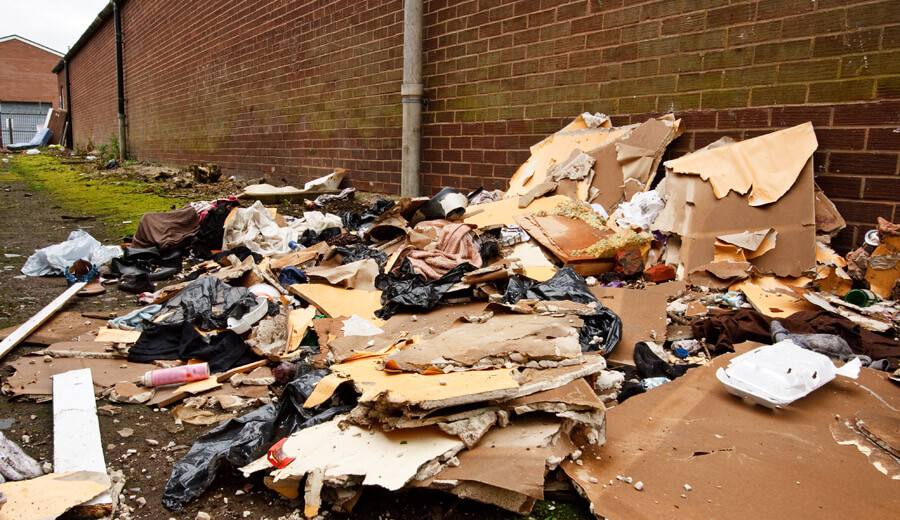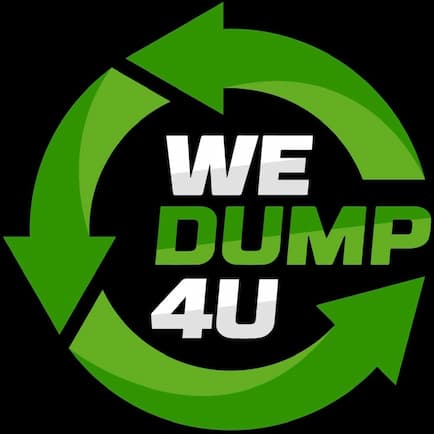When it comes to getting waste removed from your house, there are plenty of do’s and don’ts you need to consider. Understanding these can help ensure a smooth, efficient, and legally compliant waste removal process. Our guide outlines key tips and considerations for homeowners seeking to dispose of household waste.

Do’s When Getting Waste Removed
1. Make Sure to Plan Ahead
Planning is one of the most important parts of your waste removal process. While you don’t need a comprehensive plan, at least knowing what you want to dispose of and the volume of waste you intend to remove can help streamline your waste removal process and associated costs.
a. Assess Your Waste:
- Inventory: Make a list of the items you need to dispose of, categorising them into recyclable, reusable, and disposable waste.
- Estimate Volume: Determine the volume of waste to understand what type of service you will need (e.g., skip hire, man and van service, council collection).
b. Schedule Appropriately:
- Booking: Book your waste removal service well in advance, especially if you’re moving or undergoing renovations.
- Timelines: Allow sufficient time for sorting and organising your waste before the scheduled collection date.
2. Choose the Right Waste Removal Service
Always do your due diligence. Yes, you will want a cost-effective provider, but make sure they’re the right fit for you and are qualified.
a. Research Providers:
- Local Services: Look for waste removal services in your area and check reviews and ratings on platforms like Trustpilot or Google Reviews.
- Specialised Services: If you have specific types of waste (e.g., hazardous materials, large appliances), ensure the company you choose can handle them.
b. Verify Credentials:
- Licensing: Ensure the service provider is licensed by the Environment Agency. This ensures they are legally permitted to handle and dispose of waste.
- Insurance: Check that they have public liability insurance to cover any potential damages during the removal process.
3. Follow Proper Sorting and Disposal Guidelines
Typically, there are guidelines you need to follow if you’re trying to remove items that might be hazardous or could be recyclable. Be sure to sort your waste as follows to avoid any hiccups during the waste remove service.
a. Separate Waste:
- Recyclables: Separate paper, cardboard, glass, metals, and plastics.
- Hazardous Waste: Identify and separate hazardous materials such as batteries, chemicals, and electrical items.
- General Waste: Gather non-recyclable and non-hazardous waste for general disposal.
b. Use Proper Containers:
- Bagging: Use sturdy, appropriate bags for different types of waste (e.g., biodegradable bags for garden waste).
- Labeling: Clearly label bags or boxes containing hazardous materials to prevent mishandling.
4. Consider Environmental Impact
Worth always considering if you could recycle or reuse any items, such as electrical items. Check out our post on removing electrical items that could be recycled for more information.
a. Recycle and Reuse:
- Recycling: Ensure recyclable materials are sorted correctly and disposed of at designated recycling centres.
- Reuse: Donate usable items to charities or offer them to others via platforms like Freecycle or local community groups.
b. Eco-Friendly Disposal:
- Professional Services: Choose waste removal companies that prioritise recycling and eco-friendly disposal methods.
- Documentation: Request documentation from your provider showing how your waste was disposed of to ensure it was handled responsibly.
Don’ts When Getting Waste Removed
While some of these might appear to be no-brainers, some of us still fall foul to these, so it’s important to reiterate to avoid these don’ts when getting rid of household and garden waste from your home.
1. Don’t Ignore Legal Regulations
As you’ll know, there are legal requirements for the removal of waste and these should be adhered to in all circumstances.
a. Fly-Tipping:
- Illegal Dumping: Never dump waste illegally in public spaces, as this can result in hefty fines and legal action.
- Reporting: Report any fly-tipping incidents you witness to your local council.
b. Incorrect Disposal:
- Hazardous Waste: Don’t dispose of hazardous waste in regular bins. Use licensed services that can handle these materials safely.
- Electrical Items: Dispose of electrical items in compliance with the Waste Electrical and Electronic Equipment (WEEE) Directive. For anything electrical, consider using a licensed appliance removal company.
2. Don’t Overfill Skips or Bins
We get it, you want to get the most out of your skip when using waste removal services, but remember, there are weight limits to everything and this includes your bins and skips. First thing to do when using a skip hire service is to know the weight of the skip you’d like to hire.
a. Skip Loading:
- Weight Limits: Adhere to weight and volume limits specified by your skip hire service. Overfilled skips can be dangerous and may not be collected.
- Prohibited Items: Avoid placing prohibited items in skips (e.g., asbestos, tyres, certain chemicals).
b. Bin Management:
- Correct Usage: Use your council-provided bins correctly, following guidelines for what can and cannot be placed in each bin.
- Overflowing Bins: Don’t overfill your bins or leave excess waste next to them. Arrange for additional collections if necessary.
3. Don’t Hire Unlicensed or Uninsured Services
Fairly straight forward, and can be far more hassle than worth so make sure you are using trusted and licenced waste removal contractors when removing any waste from your home.
a. Verify Licensing:
- Environment Agency: Always check that the waste removal service is registered with the Environment Agency. You can verify their credentials online.
- Avoiding Rogue Traders: Don’t hire unlicensed “man with a van” services, as they may dispose of waste illegally, leading to fines and environmental harm.
b. Check Insurance:
- Public Liability: Ensure the company has public liability insurance to protect against any damage to your property during the removal process.
4. Don’t Neglect Preparation
a. Sorting Beforehand:
- Efficient Sorting: Don’t wait until the last minute to sort your waste. Pre-sorting can save time and reduce costs during the actual removal.
b. Access and Logistics:
- Accessibility: Ensure easy access for the waste removal team. Don’t block driveways or paths with other items or vehicles.
- Parking Permits: Arrange any necessary parking permits for skips or removal vehicles if your property is in a controlled parking zone.
Conclusion
Proper waste removal from your house in the UK requires careful planning, adherence to legal guidelines, and consideration of environmental impact. By following the do’s and avoiding the don’ts outlined in this guide, you can ensure a smooth, efficient, and responsible waste removal process. Always choose reputable, licensed services and take the time to sort and prepare your waste correctly. This not only helps in maintaining a clean and safe environment but also contributes to sustainable waste management practices.

